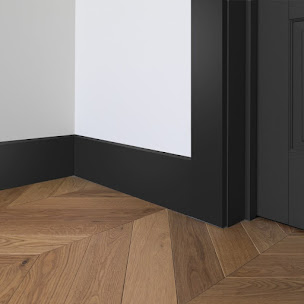How Plastic Grating Improves Workplace Safety and Hygiene
Workplace safety and cleanliness are extremely important issues in any industrial or commercial setting. Be it a factory floor, chemical facility, food processing plant, or marine platform, flooring systems are important for worker protection and maintaining cleanliness. For decades, conventional flooring solutions like concrete or metal Anti Slip Grating have been the norm, but they are not without their limitations.
Enter plastic grating a new-age solution aimed at upgrading safety and hygiene standards. Lightweight, resistant to corrosion, and with the user's safety in mind, plastic grating is fast emerging as a mainstream favorite across sectors. In this article, we find out how plastic grating enhances workplace safety and hygiene, ensuring companies meet regulatory requirements and minimize accident risk.
Better Slip Resistance for Safer Walkways
Slipping, tripping, and falling are still among the primary causes of occupational accidents globally. Conventional metal grating may be slippery when oily or wet, posing risks to workers. Plastic grating, particularly types of grating that are specifically produced as anti slip grating, offers a more secure surface for walking.
Numerous manufacturers provide anti slip floor grating with a textured or gritted surface that provides traction even in harsh conditions. This function is most beneficial where spills are common, including food processing facilities, chemical plants, or dock facilities. By lessening the likelihood of slips, companies can safeguard their employees, reduce downtime due to accidents, and stay compliant with health and safety standards.
Corrosion Resistance for Long-Term Reliability
Metal grating can rust and corrode, particularly when exposed to chemicals, moisture, or salty conditions. Rust not only undermines the structural integrity of the floor but also produces a rough and dangerous surface to walk on.
Plastic grating, however, consists of fiberglass-reinforced plastic (FRP) or other engineered polymers and so is inherently resistant to chemical damage and corrosion. This implies a consistently safe surface, even in extreme environments like wastewater treatment plants or offshore platforms. Plastic grating remains intact and slip-resistant for years to create safer conditions with little maintenance.
Better Drainage and Spill Control
A dry and clean working environment is critical for avoiding accidents and maintaining hygiene. The open mesh of plastic grating permits liquids, dirt, and other impurities to be drained immediately.
In cases where spills occur frequently like breweries, dairies, or industrial kitchens — rapid drainage eliminates the possibility of standing water breeding bacteria or making surfaces slippery. Plastic grating's capability of facilitating cleanliness and minimizing slip risk is a significant benefit in terms of keeping both safety and hygiene standards in check.
Easy-to-Clean Surface for Better Hygiene
Work environments that value cleanliness, like food manufacturing plants or medicine manufacturing plants, require floors that are easy to sanitize and resistant to contamination. Plastic grating provides a non-porous environment that will not absorb liquids, meaning it is less likely to support bacteria, mold, or odors.
Plastic grating is easily cleaned a simple wash under water or mild soap is typically sufficient to maintain sanitation. Pressure washers are even used at some facilities to make certain it is properly cleaned, and plastic grating can withstand it without harm.
This low-maintenance aspect not only enhances sanitation but also saves time and labor expense, which is important in busy industrial settings.
Benefits of Electrical and Thermal Safety
In contrast to metal Grating, plastic grating is not conductive, offering a secondary level of protection where workers are subject to electrical wiring or equipment. This is especially valuable in power plants, factories, and other places where electrical danger is an issue.
Plastic grating is also less likely to get uncomfortably hot or cold, making the surface safer and more comfortable for workers in extreme temperature conditions.
Minimizing Noise in the Workplace
Noise levels can drastically affect worker safety and productivity. Metal grating tends to make loud, echoing noises when personnel or equipment travel across it, contributing to a harsh noise environment. Plastic grating simply has a tendency to dampen sounds, creating quieter operation.
This advantage not only enhances comfort but can also simplify the ability of workers to communicate, listen for alarms, or react to potential dangers in a timely manner.
Customization Features for Safety Zones
Most manufacturers supply plastic grating in a wide range of colors, which can be strategically utilized to indicate safe walkways, off-limits areas, or danger zones. Visible cues guide foot traffic and confine employees to specific safety zones.
Incorporating color-coded anti slip floor grating, companies can enhance organizational levels in workplaces and reduce confusion in high-traffic areas, adding a further layer of safety.
Reduced Maintenance, Reduced Hazards
One of the most important aspects of workplace safety is maintaining good condition of flooring. Metal grating tends to need periodic painting, galvanizing, or rust treatment to remain operational. Without it, it can become dangerous with hard-to-navigate edges or compromised areas.
Plastic grating is low maintenance. It doesn't rust, corrode, or peel, and thus there is no danger of workers being exposed to sharp edges of metal. This consistency minimizes possible risks and provides a uniformly safe surface during its lifespan.
Facilitating Regulatory Compliance
Industrial buildings are governed by stringent health and safety laws. Placing plastic grating with anti slip grating characteristics aids businesses in meeting OSHA and other regulatory requirements for slip resistance, drainage, and cleanliness.
By selecting a flooring system that satisfies the above, businesses not only escape heavy fines but also showcase their dedication to employee well-being.
Final Thoughts
Workplace hygiene and safety are not negotiable in any industrial environment, and flooring systems are critical to achieving those standards. Plastic Grating provides an integrated package of advantages above and beyond traditional solutions from anti slip floor grating surfaces lowering incidents of accidents to easy-to-clean materials that ensure cleanliness.
Its resistance to corrosion, minimal maintenance needs, and speedy draining of spills make it a sensible, long-term option for commercial use. Plastic grating investments allow companies to establish a cleaner, safer, and more efficient work environment that guards against employee injuries and enhances productivity.




Comments
Post a Comment